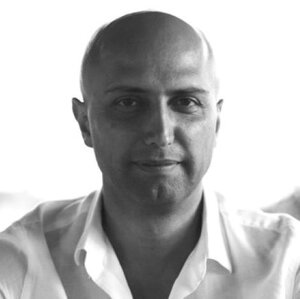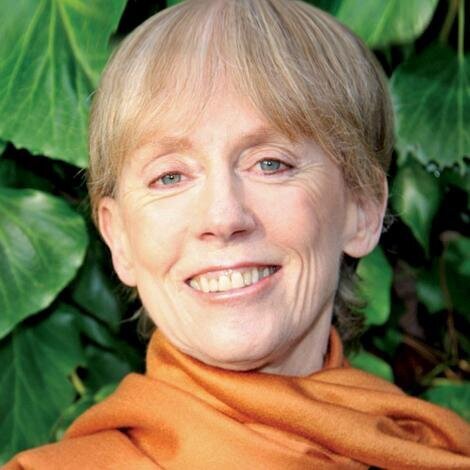How can I be a better at listening?
Often, when my daughter is telling me something, I notice that I am actually not listening.
She’ll say, “Mom, are you listening?”
Meanwhile, in my head there is a whole stream of thoughts about bills to be paid, lunch boxes to be made, and getting to school on time. It’s painfully clear how not present I am when my daughter is telling me something, and I cannot remember a word she said.
For me, this is like a mindfulness bell. It reminds me – Oh shit. I’m distracted again.
I always believed that what I said didn't matter.
These situations with my children often make me think back on the effect it had on me as a child to not feel listened to. In common psychotherapy jargon, I didn’t feel “heard” and thus not “validated.” And for me as a kid, this translated into me believing that what I said didn’t matter.
I remember being little and sitting at the dinner table, talking about something or other. I would see my parents, especially my father, gazing in the other direction. In my mind, I was sure he wasn’t focused on me.
Maybe it was as simple as he was just looking for the butter, but still, I got a pit in my stomach and felt like he just wasn’t interested in what I had to say.
I didn’t feel heard by my mother either. Often, if I told her that I was sad or disappointed, she would say something like, “Well don’t you think I feel disappointed too?” Her intention was most likely to identify and empathize with me, but to me it felt like she didn’t hear me.
I would feel the familiar pit in my stomach again. She didn’t see me. She didn’t empathize with me.
When I spoke, it felt as if she immediately thought of herself and her own feelings. With time, I became used to feeling that people did not hear me. For many years growing up, this is how I saw the world and my close relationships.
Not feeling heard leads to low self-esteem
I remember gradually learning not to speak up, rely on people in my life, or cling to the things I cared about and wanted to talk about. Not feeling heard had a huge impact on me as I grew into young adulthood. My self-esteem was very low, and I really believed that I didn’t have anything to say that mattered for many years.
My mind would tell me that if I spoke up, someone would think I was silly. So I would edit what I said.
All of this led me to struggle with finding my true inner voice. I was a very sensitive child and young adult, and even into adulthood, I’ve had to really work to rebuild my self-confidence and belief that what I have to say matters.
To me, not being heard or feeling like what I had to say didn’t matter gave me an underlying sense of loneliness. I would tell myself: “No one listens, so there’s no need to say anything.” This led me to keep to myself and close down little by little as the years passed.
Where there is a lack of listening, slowly but surely, we learn to bury ourselves. Feeling like no one hears you have repercussions. For me, it all boiled down to a sense of loneliness, disconnection, and feeling misunderstood.
Expression and connection
Later on, at age 27, when I got sober and joined AA, I still had trouble sharing my innermost self with people. For a while in early sobriety, I had a therapist with whom I would literally cry and cry for the entire hour I was there. I finally had a space where I could say things I hadn’t dared to say for all those years.
In LA, in my early sobriety, I lived alone for a long time and struggled to find my roots. I spent a lot of time with people just so I didn’t have to be alone, but there was no real sense of connection. They weren’t people I felt comfortable sharing my deepest self with.
I was also coming off being a full-time NYC party girl, so deep connections weren’t really something I was used to. I remember going out with friends for dinner or simply to a meeting and coming home feeling so terribly sad and lonely. So disconnected. Still, I was not able to develop a skill for sharing with people on a deeper level.
My journey in AA went on, and for the first ten years there, I almost never shared at meetings. Even after all that time, I still didn’t believe that what I had to say mattered, and I was afraid that something I might say would sound stupid or silly.
Meditation and Self-reflection were the gateway to my inner voice
Many years went by but with the help of AA’s 12 Steps, therapy, and especially through meditation, I learned to understand myself better and cherish what I had to say and love myself. It was through these tools that I discovered myself and increased my ability to connect not only with others but more importantly with myself. Slowly, what the outside world might think didn’t matter so much, and validating myself, and my soul became the most important thing.
This resulted in surrender and letting go that enabled me to share and speak up at meetings. Someone would share, and I’d get inspired – words brewing in my mind – and I’d have to get them out. I knew those words were not from my small ego self, they came from a larger place deep within my soul, and that’s why it feels different now.
I had found my voice.
Also, lucky for me, I don’t care so much what people think anymore.
Feel free to read in more detail about these tools in Finding Yourself.







